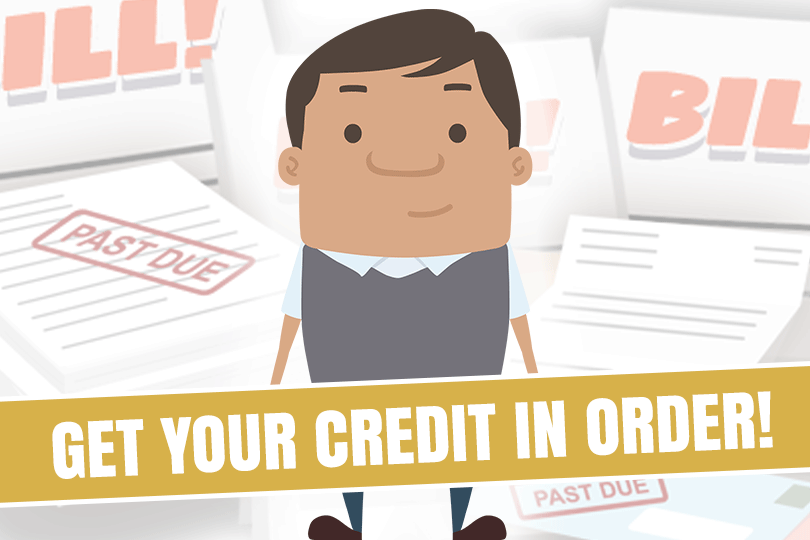When Should I Get Approved for a Home Loan?
January 31, 2022
WHAT IS A PREAPPROVAL
A mortgage pre-approval starts with an examination of your finances. It is when a lender uses a potential borrower’s financial information, credit score, debt-to-income comparison, employment history, and other critical information to determine whether or not to loan them a specific amount of money. When applying for a pre-approval with a lender, you will know exactly how much you can borrow to buy a home and at what interest rate. Depending on your lender, you may be able to lock in the interest rate for when your final mortgage application gets approved.
THE PREAPPROVAL PROCESS
To start the pre-approval process, you will need to file an application with a lender. The application typically has eight sections that cover a number of different details.
- Loan type and terms
- Information about the property and purposed of the loan
- Applicant’s information (name, date of birth, social security number, etc)
- Employment information
- Monthly income and housing expenses
- Assets and Liabilities
- Details of Transaction
- Declarations
WHEN TO GET YOUR MORTGAGE PREAPPROVAL LETTER
The pre-approval for a home loan is typically valid for 60 to 90 days. The time limit is set by mortgage lenders because your finances and credit standing can change. You have until the set expiration date to finalize the loan with the terms outlined in the Loan Estimate. If your pre-approval expires, you will need to submit a new application with updated documentation.
Having a preapproval letter ready when you are shopping for a house gives homebuyers an advantage. The official document shows sellers that you are a serious buyer and are financially able to follow through on your offer. Sellers are more likely to negotiate on the price with buyers who are pre-approved for a mortgage, and most of the time, they choose not to entertain offers from buyers without the preapproval letter.
PRE-QUALIFICATION VS. PREAPPROVAL
While both terms are used interchangeably, it is important that you as a borrower know the difference between pre-qualifying and being pre-approved for a mortgage.
To pre-qualify for a loan, you must provide an overview of your finances, income, and debts to a lender, who then determines an amount they are likely to loan to you. That is why pre-qualifying for a loan is a useful way to estimate what kind of home you can afford.
On the other hand, the lender takes a much more in-depth look at your finances during the preapproval process, since it includes a credit check and a look at actual documentation, such as bank statements, pay stubs, tax returns, W-2 statements, etc. Consequently, the preapproval letter holds more weight when it comes to placing an offer on a home, since there is a hard inquiry into your credit, and lenders have taken the time to verify you as an eligible borrower.
Remember that a pre-approval does NOT guarantee you a loan. Your preapproval letter is contingent on whether or not the financial and employment information you provided is consistent before your loan closes. Buying a home is a big decision, and it is in your best interest to go in to it prepared with a pre-approval, so talk to your lender about your next steps on getting pre-approved!
------------------------------
RELATED VIDEOS:
Home Equity Can Secure Your Second Mortgage
Consider the Advantages of Discount Points
FHA Limits are Calculated and Updated Annually

FHA Loan Articles
October 22, 2024While the Federal Housing Administration sets rules for FHA loans, lenders retain some flexibility in determining interest rates, fees, and specific loan terms. Depending on circumstances, the FHA loan offered by your local bank might not be as competitive as one offered by a credit union or an online lender specializing in FHA products, or vice versa.
October 17, 2024Buying a home is one of the most significant investments Americans make. Understanding how to strengthen your credit profile and leverage the power of credit counseling is essential for successfully navigating the FHA loan process. What should you know about your credit to make the most of your home-buying journey?
March 13, 2024There are plenty of reasons to delay plans to refinance a home. One reason has made big headlines. When borrowers face higher interest rates than originally approved for, that is a good reason to wait to refinance.
February 12, 2024When you are approved for an FHA One-Time Close Construction loan, you get a single loan that pays for both the costs to build the house, and serves as the mortgage. One application, one approval process, and one closing date.
November 22, 2023In the last days of November 2023, mortgage loan rates flirted with the 8% range but have since backed away, showing small but continued improvement. What does this mean for house hunters considering their options to become homeowners soon?







